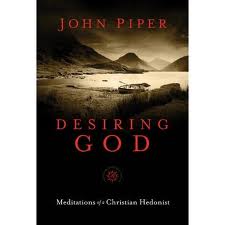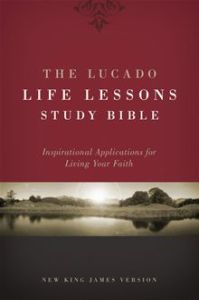
My wife and I just returned from a week long retreat in Louisville, KY where we attended the ‘Together 4 the Gospel 2018’ Conference. The conference was hosted at the Yum Center located on the edge of the Ohio River. I had previously attended the 2010 and 2012 conferences and while plans had intended to add ’14 and ’16 to that list, the demanding realities of both a church start and the addition of a member to our familial number, laid the proverbial “kibosh” on those plans. The conference was especially a blessing to April (my wife) since, for some time, she has complained about the condition she calls “Mom Brain”. Apparently, this is a condition common to moms, whereby the brain deteriorates after years of exposure to the daily instruction, correction, care, and homeschooling of child-aged human beings. The brain’s adjustment to the absence of uninterrupted meditation, makes it difficult to maintain consistent, intellectual stamina, especially, in the area of theology, both Biblical and Systematic, which is an essential to the Reformed mind and heart. So for April, particularly, this week was a tremendous refreshment for her in these areas. To pursue courses of biblical thought without interruption allows for deep, tracked meditation, which itself leads to informed conversation, all of which we were delighted to find ourselves able to engage in with one another. We found that we both approached the conference’s content with a greater ability to focus. Since I was able to focus without interruption and without the normal daily, ministerial cares. I was able to engage the conference on a more critical level and as such I found many things that were Gospel encouragements (I intend to address the Gospel oversights I sensed in the next post). In this specific blog article I thought I would take the time to emphasize some of the Gospel blessings I received coming out of the conference.
Music Style Equality
One of the issues that has created a wedge between Christians is the matter of music. To be more exact, the issue of ‘Contemporary Christian Music’ as it is often called. While there is much in the area of spirit, philosophy, and Theology that CCM gets very wrong, this is not a blanket permission slip to toss everything produced since Sandy Patty out the door. I especially, have found value and faith encouragement in many of the modern hymns and songs. I can appreciate many of the lyrics written my Keith and Kristyn Getty (Irish style), Shai Linne (hip hop), and Sovereign Grace Music/Bob Kauflin. But I also am endeared to many of the traditional hymns and songs of the faith. At the conference our “group sing” was led by Bob Kauflin playing a black, grand piano. If you have never heard nearly 12,000 voices sing ‘Holy, Holy, Holy’, ‘Be Thou My Vision’, and ‘Come Thou Fount of Every Blessing’ (and others), I can tell you, it immediately draws your attention to ponder the many “throne” scenes described in the book of Revelation. While the numbers are not near those described in the Bible, it was no less moving to listen to so many confess the truths of our Creator God and His Son, Jesus the Christ. I also noticed that as we would move between “modern” and “traditional” hymns/songs that the zeal and passion never shifted. I was glad for this as the melodies of many of the “modern” hymns/songs tend to lend themselves more easily to “emotional engagement”, sometimes to the neglect of many of the solid “traditional” ones, which might sound a bit “starched” to the modern ear. This was not the case at the conference. There were the strongest of voices in the recitation of the old, familiar lyrics that was on par with those of the “modern” songs we sang. Each song received equal amount of zeal, passion, and conviction. Hands raised, voices lifted, each and every hymn/song seemed just as precious as the next one. It was obvious very quickly that the lyrics and their gospel soundness was where the individuals were primarily engaged and not in the melody. This was an encouraging thing to experience.
The Primary Over Secondary
Many of the Reformed Denominations were represented in the crowd. There were Anglicans (yes there are very orthodox reformed-minded Anglicans, most were European), Reformed Church (Dutch), Presbyterian, and many Baptists, all showing a wide range of ethnic diversities from around different parts of the world. Discussions (and banter) between the denominations on issues of Baptism, Lord’s Supper, Church membership, Eschatology, and systems of church leadership were heard, yet they were always put on the proper level, the secondary level, and always within the bounds of mutual love and appreciation. While I am a Reformed-Covenantal Baptist, I do enjoy hearing the arguments of these denominational variances and then tracking them back to their gospel implications. This helps me discern the most biblical positions and to defend them accordingly. I was blessed by this emphasis.
The Sermons Preached
There is a bit of a disappointment for me on this one, particularly, as it concerns the faithfulness of the sermons to the Conference’s theme (which I will address in the next post). This Conference’s theme was on the gospel’s “Distinction” from the world. I would have to say that the one sermon that encompassed the theme most accurately and most effectively was preached by Kevin Deyoung. While others appeared to be a bit overwhelmed at the depth of Deyoung’s exposition on the “Immutability” of God, I was literally on the edge of my seat. I sensed immediately the direction of the exposition and was soaking it up like a sponge to water. The whole point of the sermon might be summed up in this way, “God is not like man and is Immutable; therefore, our good news (gospel) message will not be like the world’s “good news” message and it cannot change.” I was most blessed with the meditation of this proposition which came later as we left the Yum Center at the end of the day. The truth is, our greatest defense of the Gospel’s purity will come in the assurance and conviction of who the God of the Gospel really is. He is high above us. His ways are not our ways. His ways are righteous. He does not change. This keeps us faithful to preaching, with all purity, the Scripture’s articulation of the Gospel. This was a tremendous encouragement to me.
The Gospel Left Upon the City
There is so much I could say on the subject of Gospel encouragements from last week, but I will end on this. I know there is always going to be present those situations where some fallen being, though redeemed, lives in a way that does not honor Christ and that actually serves to express all too well the presence of sin in our flesh. So I am not disillusioned to think that these situations did not happen, but only that on the whole, it appears that the almost 12,000 attendees presented the city with a largely, positive experience, an experience that showed a gospel produced and sealed spirit. I know that the hotels, transportation businesses, and convention retailers appreciated the business that T4G provides. I am also, aware that though some may not have presented the restaurants and their employees the most generous appreciations (i.e. tips, though April and I always made sure to do so on the more generous side) they did appreciate the influx of business as well as the patience that the majority of attendees displayed. There was no drunkenness, riotous or belligerent behavior as the city might have expected during and after a secular event. The security, which was extremely tight on the first night, appeared to me, to loosen up much more on the following days. The police presence needed for the sake of traffic didn’t appear too overly concerned and seemed to be more and more relaxed with each general session, to the point that they often were found conversing with their comrades in lighthearted tones almost more than they watched the masses flooding into the Convention Center. As a personal example, there was a woman working the coffee stand located in the Center that was oft visited, when we asked for something other than regular coffee (April isn’t fully converted yet), the woman admitted they had nothing else but asked if she could attempt to make something up for April with some of the various flavor and sugar packs at her disposal. It was a winner, to April’s delight, and only afterward did we find out she was barista at one of the local bars. We visited and conversed with her several times (she always remembered April’s need) and after the conference I saw that she posted a very nice thank you on the T4G Facebook page and welcomed us all back again. I messaged her a personal reply and reminded here of who we were and thanked her again for serving all of us. I found out that she was putting in 17 hour days. I was pleased to see that apparently, the Conference attendees left a pleasing experience for her. This was a great Gospel encouragement to me for one specific reason, the greatest confession of the Gospel in one’s life is found in the life they live for the non-Christians to observe. Talk may be true, but it comes cheap if there is no force of it in your actions. My experience was, and my prayer is, that God was glorified and the Gospel proved, with certainty, to be distinct and separate from anything else Louisville experiences. Soli Deo Gloria!







Recent Comments